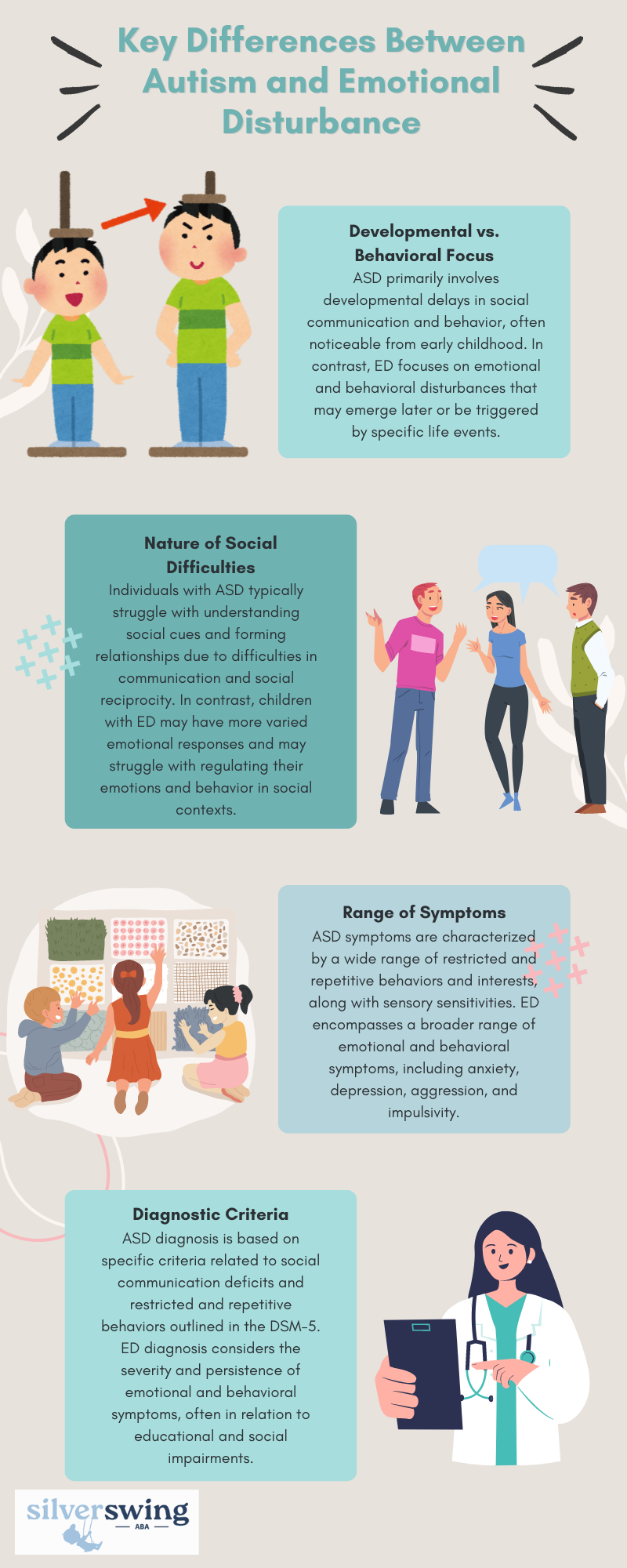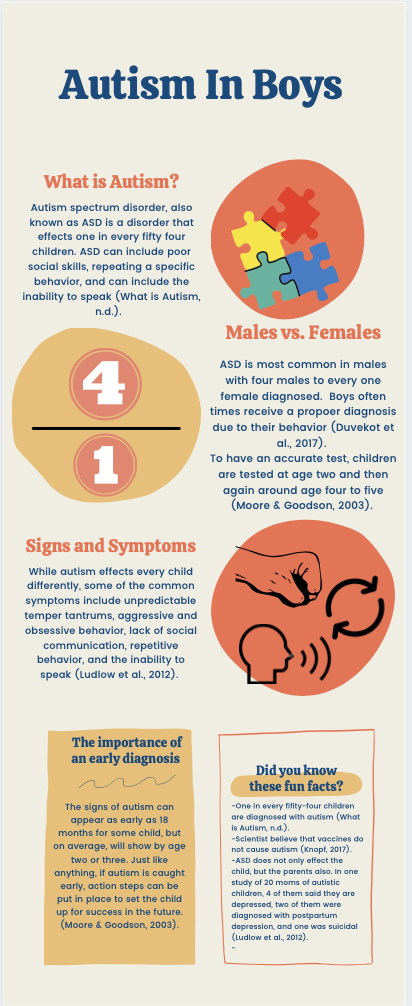With the help of Autism Behavioral Therapy, caregivers can foster independence in daily routines
With the help of Autism Behavioral Therapy, caregivers can foster independence in daily routines
Blog Article
Comprehending the Effect of Behavioral Autism on Every Day Life and Social Interactions
You might not recognize exactly how deeply behavioral autism impacts day-to-day life and social interactions. Individuals on the spectrum commonly browse a globe filled with interaction obstacles and sensory overload. These obstacles can lead to irritation and isolation, affecting their relationships and general well-being.
Specifying Behavioral Autism and Its Characteristics
Behavior autism, typically referred to as autism spectrum problem (ASD), incorporates a series of conditions identified by difficulties in social communication, interaction, and repeated actions. You may see that individuals with ASD frequently have a hard time to translate social hints, which can bring about misunderstandings in conversations. They might find it difficult to establish eye contact or take part in tiny talk, making social circumstances feel overwhelming.
Interaction troubles can show up in different ways, from postponed speech advancement to a choice for making use of less words. By identifying these traits, you can cultivate an environment that promotes acceptance and encourages efficient interaction, aiding individuals with autism flourish in their daily interactions.
The Range of Autism: Recognizing Irregularity in Habits
Autism range problem (ASD) isn't a one-size-fits-all diagnosis; it differs widely amongst people. You might observe that some people with ASD display light symptoms, while others might face much more substantial challenges. This irregularity can show up in actions, interests, and sensory level of sensitivities. You might experience people who are highly spoken and engage easily in discussions, while others could favor solitary activities or connect non-verbally.
Furthermore, the means people with ASD respond to sensory input can vary significantly; some may be overwhelmed by loud noises or intense lights, whereas others prosper in promoting atmospheres. The range likewise includes distinctions in social interactions; some people may have a hard time to interpret social hints, while others navigate social settings with relative convenience. Recognizing this irregularity is vital, as it helps you value everyone's unique experience and tailor support to their certain needs, fostering an extra inclusive setting for everybody.
Communication Difficulties Dealt With by People With Autism
When you engage with people on the autism range, you might see their special communication obstacles. They commonly deal with troubles with both verbal and nonverbal cues, which can affect their social interactions. Comprehending these barriers is crucial for cultivating much better links and support.

Verbal Communication Problems
Numerous people on the autism range experience spoken interaction troubles that can considerably impact their day-to-day communications. Your rate, volume, or tone might not straighten with social expectations, causing others to misunderstand your purposes. Identifying these challenges can assist you and your assistance network establish strategies to improve communication and cultivate much better links with others in your everyday life.
Nonverbal Interaction Barriers
Spoken communication isn't the only difficulty people on the autism spectrum face; nonverbal communication barriers can be simply as significant. You could find it hard to analyze body language, facial expressions, and eye contact, which are necessary for reliable interaction. These obstacles can cause misconceptions or false impressions of social cues, making interactions feel complicated or overwhelming. You may struggle to express your very own feelings through nonverbal ways, leaving others unclear of your feelings or purposes. This disconnect can develop feelings of isolation and frustration. Identifying these obstacles is essential for cultivating understanding and empathy in your communications. By resolving nonverbal communication, you can find methods to improve your social experiences and boost your overall quality of life.
Social Communication Impacts
Social interactions can frequently really feel overwhelming because of the one-of-a-kind communication difficulties dealt with by people with autism. You may have a hard time with analyzing social signs, making it hard to comprehend mockery or body movement. This can cause misconceptions or uncomfortable moments in discussions. Furthermore, starting and preserving discussions might feel difficult, causing anxiousness in social situations. You may like organized environments, making spontaneous communications unpleasant. It's likewise common to experience trouble in engaging in tiny talk, which can prevent forming brand-new relationships. Identifying these difficulties can aid you find strategies to boost interaction, such as practicing social skills in safe setups or making use of visual help - Autism Therapist. Recognizing your needs enables you to navigate social communications with greater confidence and simplicity.
Social Interaction and Relationship Structure in Autism
While structure partnerships can be testing for people with autism, recognizing their unique viewpoints and communication designs can cultivate significant links. You could discover that several people on the spectrum prefer straight interaction and might have a hard time with social signs or tiny talk. By being uncomplicated in your communications, you can help produce an environment where they feel comfortable.
Take the time to observe and pay attention exactly how they express themselves. This understanding can direct you in steering conversations much more efficiently. Engaging in shared passions can additionally act as a bridge to much deeper links. Whether it's a pastime, a preferred show, or a mutual enthusiasm, these usual threads can open doors to friendship.
Every Day Life Regimen: Navigating Challenges and Approaches
Navigating every day life routines can be especially challenging for people with autism, specifically when unforeseen adjustments occur. You might find comfort in having an organized schedule, as it aids you anticipate what's following. It's normal to feel nervous or overloaded when interruptions take place. To browse these difficulties, consider executing aesthetic timetables or checklists. These devices can supply clarity and confidence.
Developing a regimen that includes sensory breaks can additionally be valuable. This helps create an understanding atmosphere.
Last but not least, method mindfulness techniques to take care of stress and stress and anxiety. Basic breathing workouts or grounding strategies can make a significant difference. By including these approaches, you can enhance your everyday regimen and decrease disturbances, This Site making life really feel much more convenient.
Staminas and Abilities of People on the Autism Range
Understanding day-to-day life routines is simply one element of the autism experience. Many individuals on the autism spectrum possess amazing strengths and capacities that establish them apart. You may discover that your focus to information is outstanding, permitting you to succeed in jobs that require precision and emphasis. Your capacity to think outside the box can bring about cutting-edge solutions in numerous circumstances.
In addition, your memory skills commonly beam, especially in areas of rate of interest. Aba Therapist. This knack for keeping details can make you a useful resource in areas like art, modern technology, or science. You internet might likewise display solid aesthetic thinking, allowing you to visualize complicated principles and fix issues creatively
Additionally, your special perspective on the world can promote empathy and understanding in others, enhancing social interactions. Accepting these toughness not only boosts your self-confidence yet likewise aids others appreciate the varied skills you bring to the table.
Creating Inclusive Settings for People With Autism
Creating inclusive environments for individuals with autism starts with developing sensory-friendly areas that cater to their distinct needs. You can likewise cultivate chances for social communication, helping to build connections and friendships. By making these modifications, you'll add to a more welcoming ambience for everybody.
Creating Sensory-Friendly Spaces
While developing sensory-friendly areas, it's vital to mirror on the unique needs of individuals with autism. Integrate peaceful areas where people can charge and pull away when overwhelmed. Consist of visual schedules or clear signs to aid people navigate the space with confidence.
Promoting Social Communication Opportunities
Designing sensory-friendly areas not only addresses individual convenience but additionally establishes the stage for purposeful social interactions amongst people with autism. Encourage peer mentoring, coupling people with autism with helpful peers who can guide them via social situations. By executing these techniques, you can boost social chances, helping people with autism develop relationships and reinforce their social skills in a safe, inviting atmosphere.

Frequently Asked Questions
How Can Friends Assistance Someone With Behavioral Autism?
You can support a close friend with behavior autism by holding your horses, listening proactively, and respecting their borders. Take part in tasks they take pleasure in, communicate openly, and produce a comfortable setting where they feel valued and recognized.
What Resources Are Readily Available for Parents of Kid With Autism?
You can explore different resources for parents of kids with autism, consisting of support teams, instructional sites, and regional social work. Getting in touch with various other parents can likewise offer beneficial insights and shared experiences to assist navigate difficulties.
Can Behavioral Autism Adjustment Over Time?

Yes, behavioral autism can change in time. You might i thought about this observe changes in interaction, social abilities, and actions as your child grows. Early treatment and assistance frequently play vital functions in these developing modifications.
How Do Sensory Level Of Sensitivities Impact Daily Life?
Sensory level of sensitivities can make day-to-day experiences overwhelming. You could battle with intense lights or loud sounds, leading to stress and anxiety or avoidance. Discovering atmospheres that accommodate your needs can greatly enhance your comfort and total every day life.
What Are Typical Misconceptions Concerning Behavioral Autism?
You may think behavior autism only influences interaction abilities, yet it's more complicated. Several presume people do not have empathy or intelligence, which isn't true. Comprehending these false impressions helps foster approval and support for those on the range.
Behavior autism, usually referred to as autism spectrum problem (ASD), encompasses an array of problems defined by obstacles in social interaction, communication, and repeated behaviors.Social interactions can usually feel overwhelming due to the one-of-a-kind communication difficulties dealt with by people with autism.Designing sensory-friendly rooms not just addresses individual comfort yet also establishes the phase for significant social interactions amongst people with autism. Urge peer mentoring, combining people with autism with supportive peers who can direct them with social circumstances. By implementing these approaches, you can boost social opportunities, assisting people with autism build relationships and enhance their social abilities in a risk-free, inviting setting.
Report this page